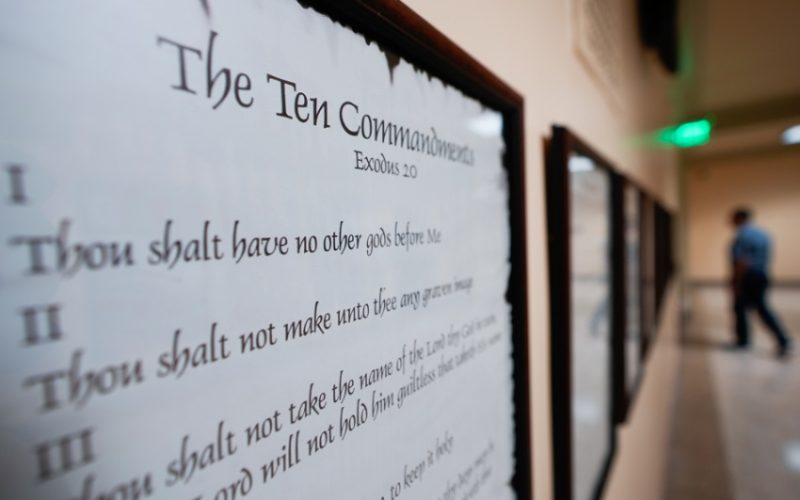Dothan, Ala. — A new bill proposed by State Senator Keith Kelley (R-Anniston) is stirring controversy as it seeks to mandate the display of the Ten Commandments in public schools. Kelley, who believes that the U.S. was founded upon the moral principles found in the Old Testament, argues that displaying the Ten Commandments would serve as a reminder of the nation’s ethical foundations.
“Too many people today don’t have a true understanding of the historical roots that shaped our country,” Kelley said. “The Ten Commandments are a reflection of the accountability and responsibility that we must all embrace.”
Under Kelley’s proposal, public schools would be required to display the Ten Commandments in common areas such as hallways or near school entrances. Kelley emphasized that the initiative would come at no cost to schools, as various groups have volunteered to fund the installation of the displays. The Alabama State Board of Education would be tasked with ensuring that the materials are made available.
However, not everyone is on board with the bill. Critics argue that the proposal is both a waste of taxpayer money and an infringement on religious freedom. Alabama House Minority Leader Anthony Daniels (D-Huntsville) expressed concerns that the bill would lead to costly legal battles, referencing a similar law in Louisiana that was blocked by a federal judge.
“We’re focusing on issues that will inevitably end up in litigation, costing the state hundreds of thousands, if not millions, of dollars,” Daniels said. “There are more pressing issues we should be addressing.”
Religious leaders are also speaking out against the bill, including the Rev. Julie Conrady, president of the Interfaith Alliance of Central Alabama. Conrady argued that mandating the display of religious texts in schools violates the First Amendment, which guarantees religious freedom. She also pointed out that such a move could alienate students who are Jewish, Muslim, or practice other faiths, noting that the Ten Commandments, written in Hebrew, are often not appropriate to display in English.
“When you translate the Ten Commandments into English, it makes theological claims, and that’s where the problem arises,” Conrady said. “Public schools should not be in the business of making religious statements or promoting one faith over another.”









